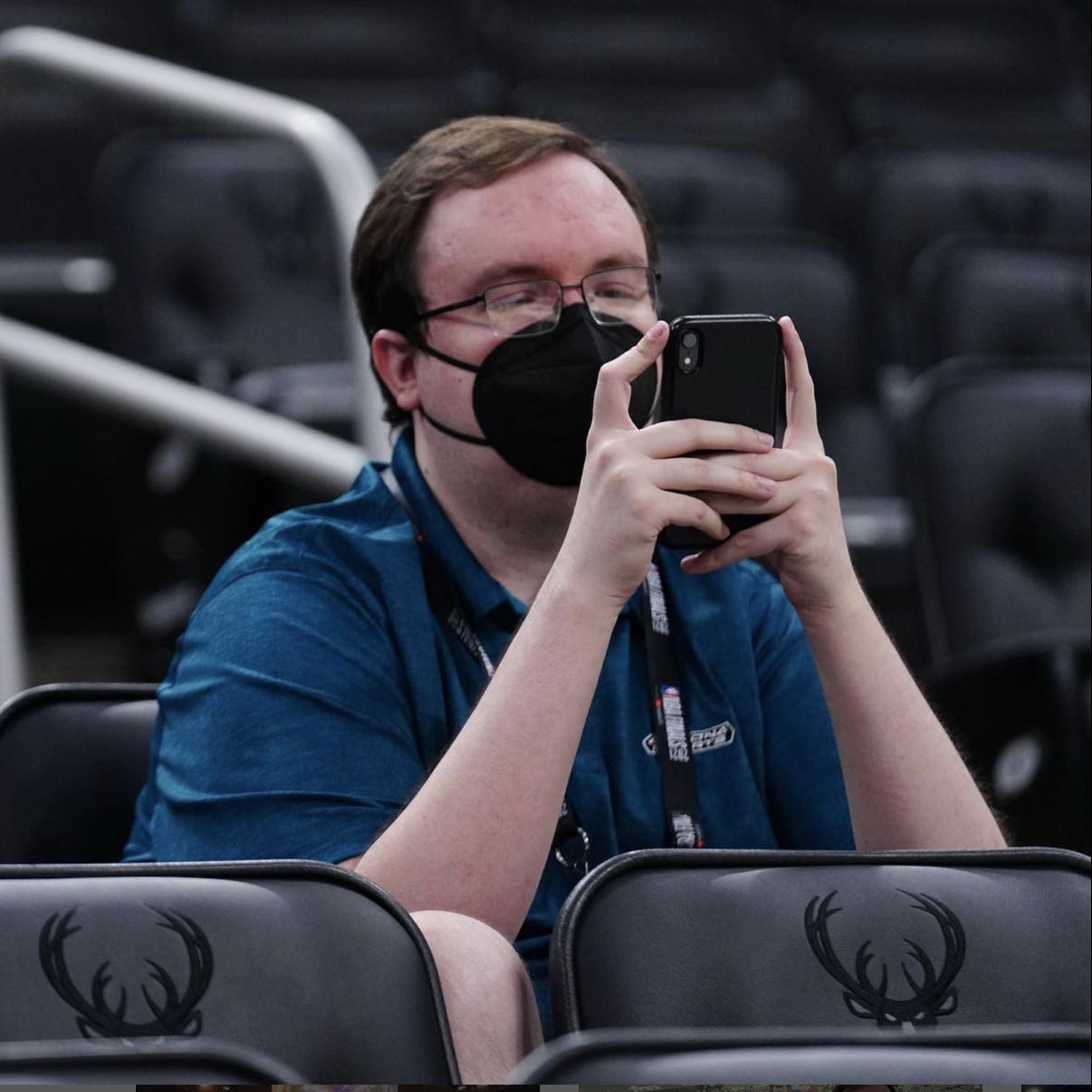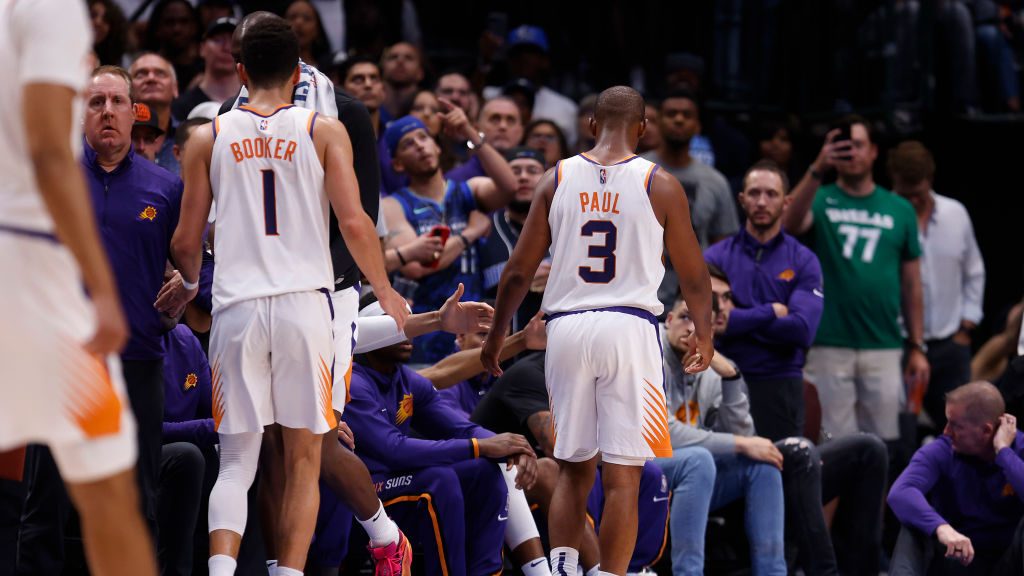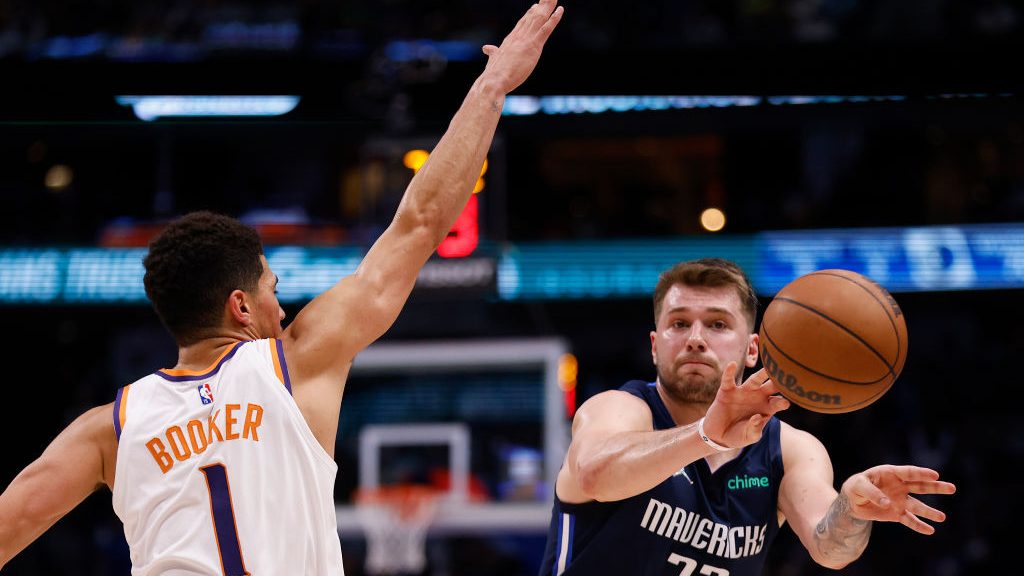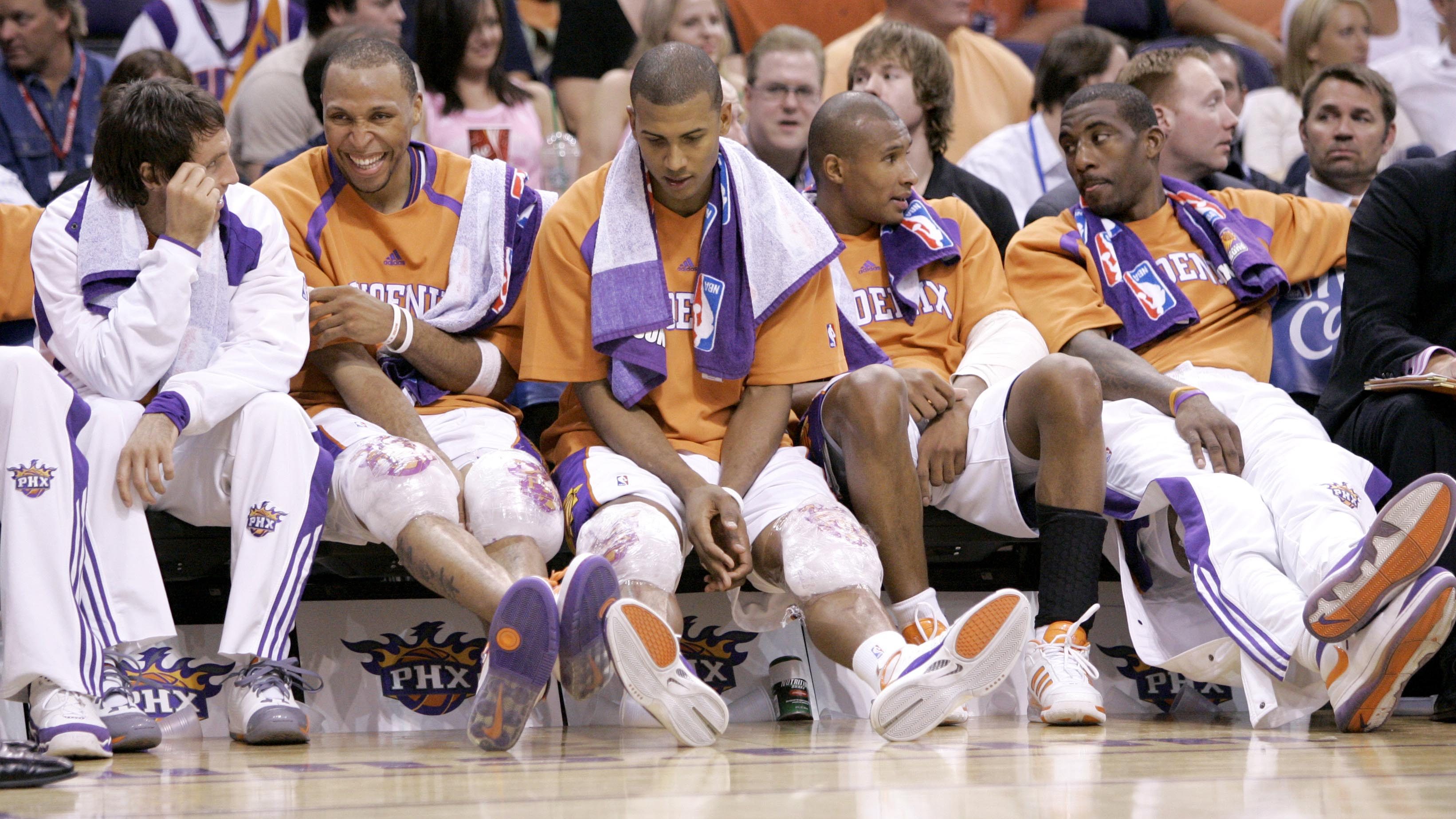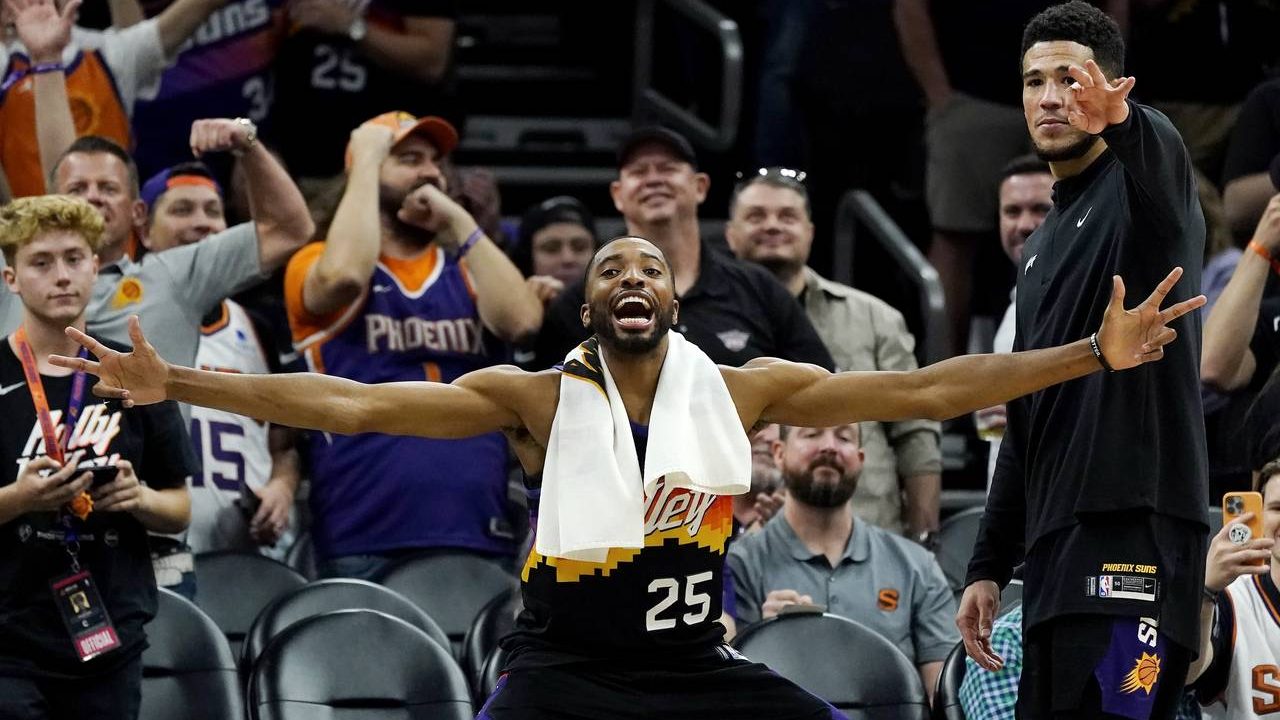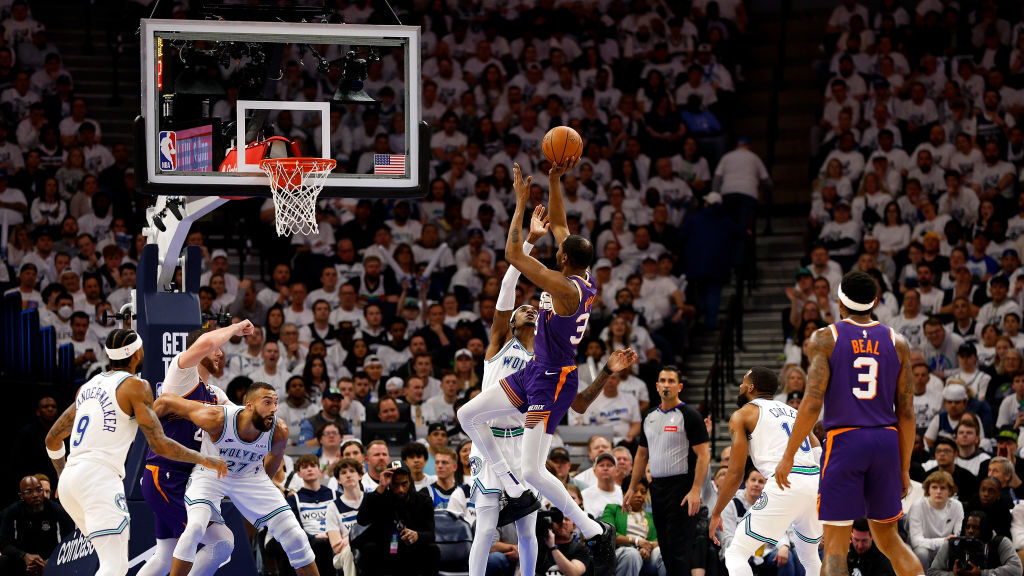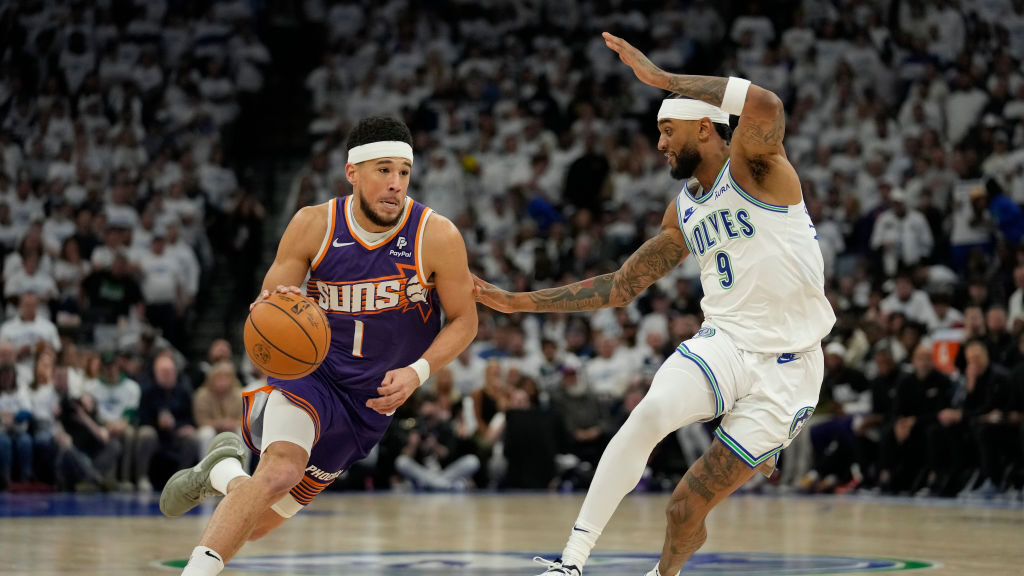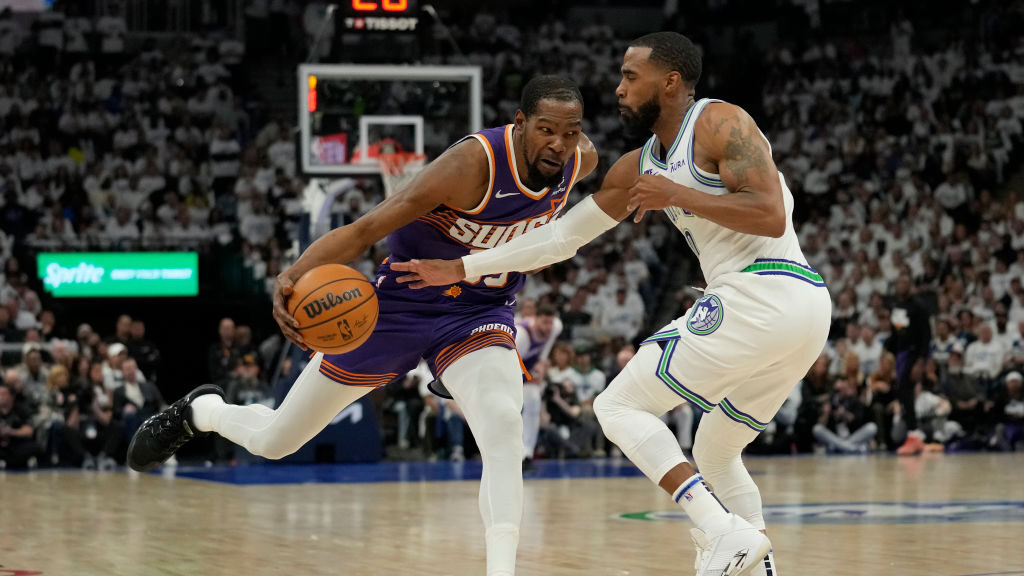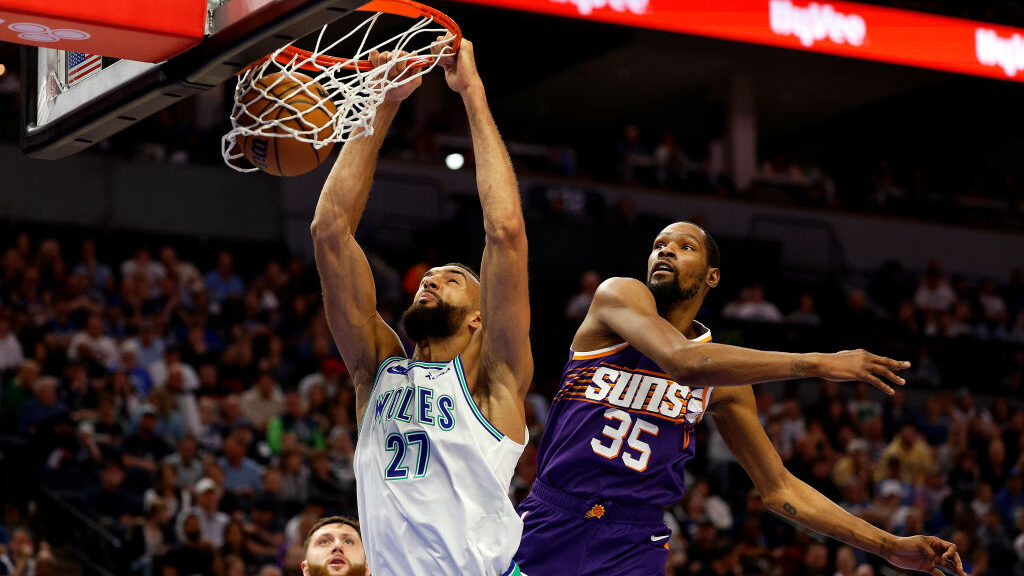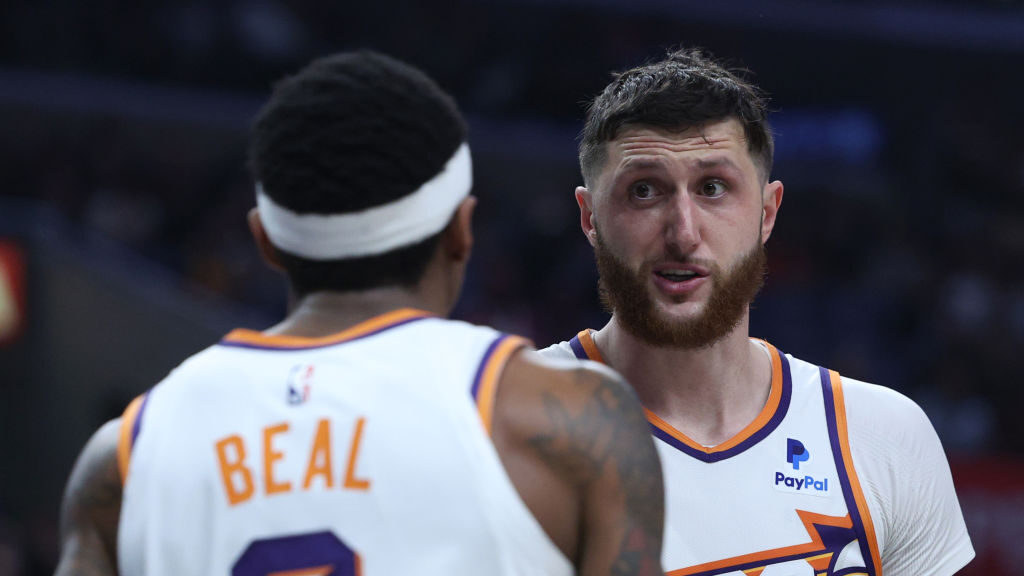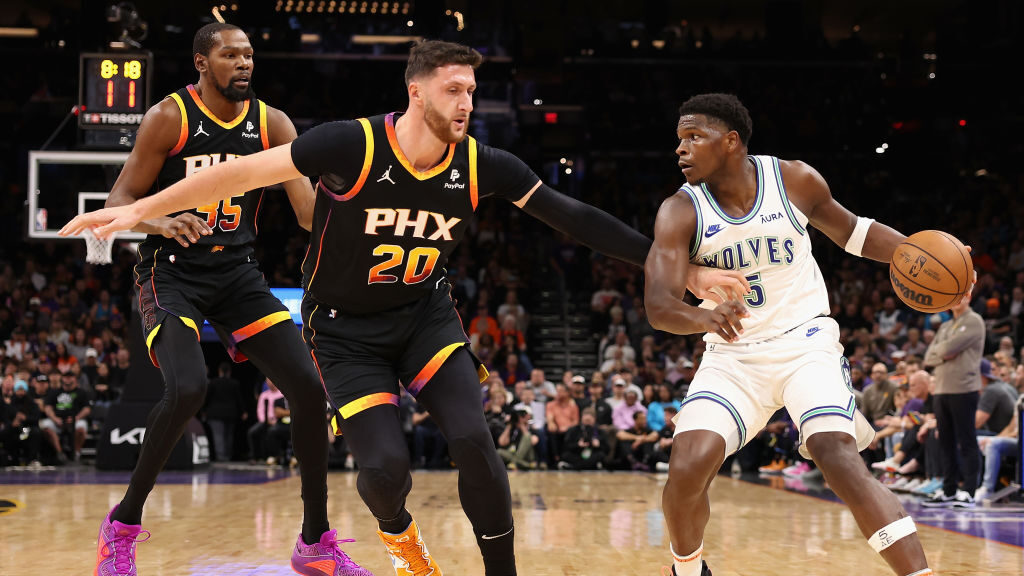Suns-Mavs Game 7 preview: Chris Paul’s struggles, Dallas’ winning formula
May 14, 2022, 5:25 PM
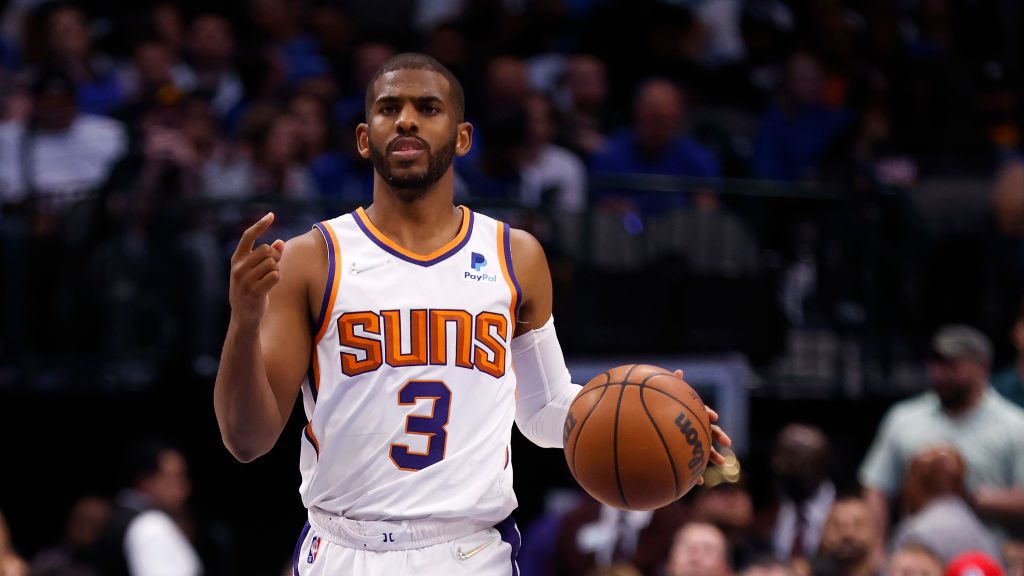
Chris Paul #3 of the Phoenix Suns dribbles the ball against the Dallas Mavericks in the second quarter of Game Six of the 2022 NBA Playoffs Western Conference Semifinals at American Airlines Center on May 12, 2022 in Dallas, Texas. (Photo by Ron Jenkins/Getty Images)
(Photo by Ron Jenkins/Getty Images)
PHOENIX — The Phoenix Suns have lost four out of five games twice since the start of last season.
The first occurrence was during a stretch 16 games into last year, the 8-8 mark when the Suns attached the rocket booster to themselves and haven’t looked back since.
The second was the four straight losses in the NBA Finals to the Milwaukee Bucks.
Will a third come and also be the end of their season?
We have arrived at our wit’s end when it comes to adjustments, gameplans and schemes for Phoenix against the Dallas Mavericks in the second round. While there are obviously takeaways from Game 6 that can be fine-tuned for Sunday’s Game 7, it’s nothing beyond the Suns getting back to the way they normally play.
The edge and focus this group possesses just about every night has faded in and out of the postseason over the last month. Sure, this would be explainable if this was the Suns’ first postseason, but they just showed last year how they can sustain a level of excellence throughout a deep playoff run.
Phoenix’s turnovers are the biggest concern, given how it is a team that previously always took care of the ball. That indicates its usually phenomenal attention to detail and the little things haven’t been as sharp.
Last postseason, Phoenix only committed over 15 turnovers three times and the Suns have already done that four times in this series alone.
“Maybe overthinking the game a little bit,” forward Jae Crowder said after practice Saturday when asked what he attributes the turnovers to. “Gotta simplify the game a little bit, trust one another, trust the ball movement.”
The good news for the Suns is because they were so awesome in the regular season they get homecourt for Game 7, where they are 3-0 in the series and it seems like some of that magic still resides.
But they’ve got to get Chris Paul going. Devin Booker’s solo heroics in Game 5 to maintain the offense until his teammates were ready to join him is a tough ask for the second time in three games.
Paul across the last four games is averaging 9.3 points, 4.0 rebounds, 6.3 assists, 4.5 turnovers and 7.0 shot attempts per game.
Dallas has been forcing him to defend in actions all series, just like New Orleans did, and it looks like it is wearing him down. But there are also the uncharacteristic mental mistakes he’s been making that can be corrected even if it’s a physical thing.
The Mavericks deserve credit for making this happen. This is also Year 17 for Paul and he’s seen every type of defensive coverage designed to stop him.
Just like how Booker has been trapped countless times and he failed to break it down quickly enough in Game 6, this isn’t a matter of the Mavericks reinventing the wheel. The Suns just need to execute.
“That’s what it’s going to come down to,” Booker said Saturday. “We know each other’s plays. We’re six games in, we’ve been playing each other for a couple weeks now so it’s just gonna come down to executing and playing hard.”
With that in mind, Dallas’ combination of execution and defenders in the positions to execute have affected Paul.
About halfway through his career, Paul stopped shooting much at the basket. It’s become a drastic enough dropoff that Paul attempted only 31 shots at the rim this regular season, per Cleaning the Glass.
Given his below-average 3-point shooting year as well, something we saw the Pelicans taking advantage of as well by daring Paul to take 3s, Dallas is trying to jam up Paul whenever he’s between five feet of the rim and the 3-point line.
That’s where Paul is 1) shooting more than anyone else and 2) at his best. He led all point guards in the percentage of his attempts to come from the midrange each of the last three seasons, according to Cleaning the Glass, and his 55% knockdown rate from there this year was also No. 1 among point guards.
It is essentially a dare to Paul for him to beat bigs off the dribble and then do something productive with the possession if he gets to the basket. That sounds crazy to do against arguably the best point guard alive, but it’s working because it is at the very least bugging him enough to throw off his rhythm.
The whole scheme is oriented around forcing Paul to his left hand instead of his right, as is nearly every single one drawn up against him since Paul’s so deadly taking shots off the bounce to his right.
“They’re doing a good job of just taking away Chris’ right. … Sometimes you just have to give in to going left,” head coach Monty Williams said Saturday. “He’s good going left. That’s the one thing that gets lost in all of this. We have counters for when teams take away his right hand and we will rely on those counters tomorrow.
“I think he’s fine. He’s a guy that watches as much film as we do as coaches. And he can see, when they’re taking that away, sometimes the play is on the back side.”
Dallas’ Maxi Kleber is a great defensive big and he has been doing a terrific job with this assignment.
In this first clip below, when Paul begins to slither at the free-throw line after getting through Deandre Ayton’s screen, watch how Kleber instantly presses forward to beat Paul to the spot before Paul can get to his patented jumper going right.
Paul gets creative from there to hit a tough shot, and then later in the first half of Game 3, gets downhill going to his left for more room.
Dallas is OK with giving Paul a driving lane once he gets out of pull-up jumper range and will usually have an extra defender waiting for a contest. You’ll notice Paul being forced to his left again.
Five of Paul’s seven attempts in Game 6 were from deep. Only two of them were in the flow of the offense when the ball started in his hands and were not in a heave or transition situation.
You can see how Kleber is impacting Paul’s thinking. Paul gets Kleber to bite here in Game 4 but doesn’t want to go all the way to the basket and anticipates his midrange space getting swallowed up so he rushes the shot with over two seconds still remaining.
That, of course, was also his fourth foul that later led to him fouling out of the game.
At the end of the day, we are talking about Chris Paul. He knows how to manipulate schemes built against him and his offense better than just about anyone in the NBA.
Paul has the same issue in Game 4 with Dwight Powell prepped for the 15-footer so three minutes later with Kleber on him, Paul just blows by him and finishes at the rim (going left).
If you notice in the last clip why Paul didn’t have rim protection waiting, that’s because Dallas wing Dorian Finney-Smith was on Ayton after the switch.
Dallas has been playing small-ball lineups at the start of the second and fourth quarters with Finney-Smith occasionally starting out as the defacto center and defending Ayton.
Here, Paul finds the space he craves (going left) because Finney-Smith is playing a drop coverage centers are used to. He is not a center.
And in the instances when Kleber is switching out and denying space (or if Finney-Smith wants to do that in the above scenarios), that opens up the mismatch for Ayton.
A lot of this has to do with Paul looking the part of someone who really needed the first extra day of rest in the series that Saturday presented. He said as much after Game 6.
“We’ll take the extra day, trust me,” Paul said Thursday.
The Suns can win Game 7 with this version of Paul but everything becomes so much easier for their supporting cast when he finds his flow. That is seemingly the more important part of this formula we’ve come to learn given the role players’ struggles in this series as well and the Suns’ problems taking care of the ball.
But Phoenix might need, at the very least, an average Paul showing.
It will be faced with a difficult decision if Dallas’ Luka Doncic begins cooking in the opening stages of Game 7. The defensive gameplan that has succeeded the most is letting Doncic try and beat them by himself.
Then again, he could do just that Sunday. What if he’s threatening to get his point total in the 30s by the middle quarters? Doubles? Traps?
There will be a razor-thin margin of error for the Suns if Doncic is rolling. The team defense around that 1-on-1 battle will need to be back to where it was in Game 5, and ditto for the on-ball defense.
The largest development for the Mavericks besides their stellar defensive play has been Jalen Brunson, who is averaging 21.3 points per game over the last four games and back to looking like himself after a rough first two outings. They need a secondary scorer alongside Doncic and have gotten him back.
To go back to formulas, Dallas’ winning one is not all that complicated and is completely plausible. Doncic and Brunson produce 50-60 points on their own, shoot a respectable 35% or better from 3 to support the rest of the offensive production and play really good defense.
That’s simple, and so is the Suns just playing their brand of basketball.
Let’s see who can make that happen.

